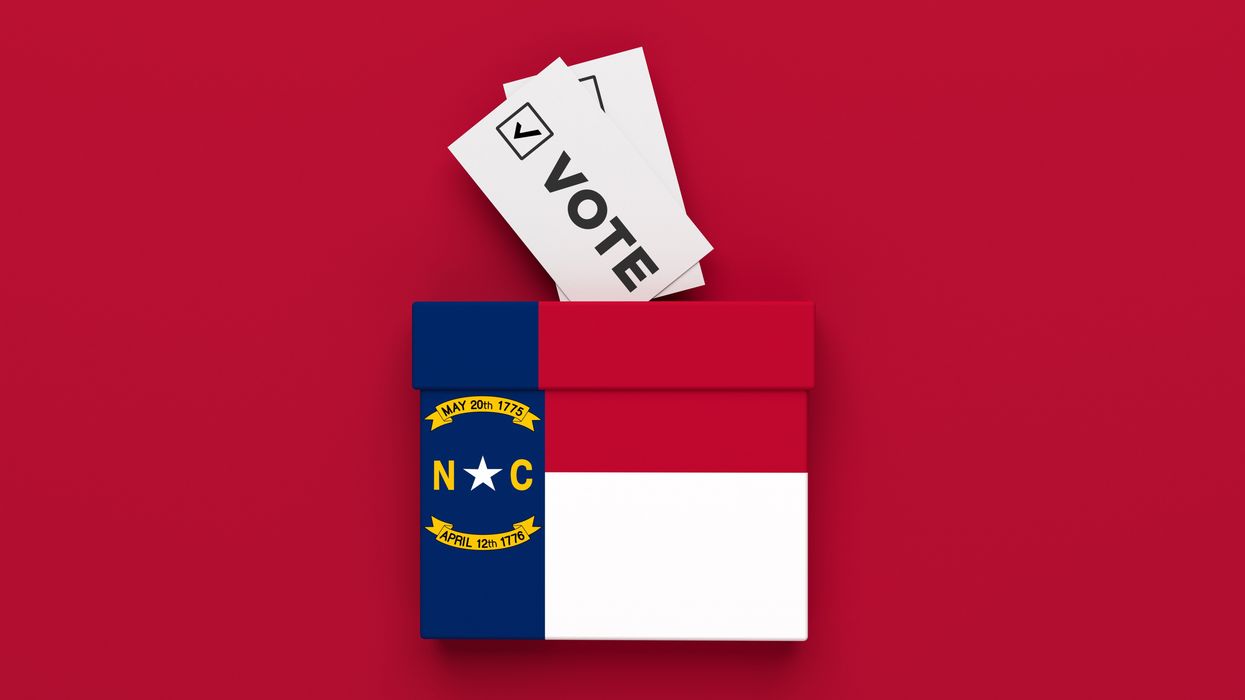While elections work differently depending on where you live, all states have security measures to ensure the integrity of every vote. With that in mind, The Fulcrum presents a six-part series on how elections work in swing states. Created by Issue One, these state summaries focus on each state's election process from registration to certification.
Our freedom to vote in fair and secure elections is the foundation of our system of self-governance established under the U.S. Constitution. As citizens, we have a voice that many people around the world do not.
Because the majority of elections are run at a local level, the voting experience can be very different depending on where a voter lives, but all states, including North Carolina, have verification processes in place before, during, and after votes are cast to ensure the integrity of the election. Whether you cast your ballot in-person or by mail, early or on Election Day, your vote counts.
Here is what you need to know about how elections work in North Carolina to make sure that your vote is kept safe and secure and counted with integrity.
Registration
- To ensure their eligibility, all voters must register to vote in order to cast a ballot in North Carolina.
- The voter registration deadline in North Carolina is 5:00 PM on October 11, 2024.
- You can register online, by mail, or in-person.
- Learn more at: https://www.ncsbe.gov/registering/how-register
Ways to vote
Once registered, a voter can decide if they will vote in-person or through a mail-in absentee ballot. Both options have transparent processes to ensure ballots are kept secure and counted accurately.
Vote by mail:
- Any North Carolina registered voter may request, receive, and vote a mail-in absentee ballot where absentee voting is permitted.
- The absentee ballot request deadline is October 29, 2024 and the ballot can be returned by close of polls on Election Day, Tuesday, November 5, 2024. https://www.ncsbe.gov/voting/vote-mail
Vote early in-person:
- Early voting starts October 17, 2024 and ends at 3:00 PM on November 2, 2024 the Saturday before Election Day. Voting occurs at early voting sites in each county.
- Voters must bring a valid photo ID to vote early in-person. See here for details: https://www.ncsbe.gov/voting/ vote-early-person
Vote in-person on Election Day:
- Election Day is Tuesday, November 5, 2024. Polls are open from 6:30 AM to 7:30 PM.
- Voters must bring a valid photo ID to vote on Election Day. See here for details: https://www.ncsbe.gov/voting/ vote-person-election-day
- Find more information about voting on Election Day: https://georgia.gov/vote-in-person-election-day
There are also options for military and overseas voting, more information is available here: https://www.ncsbe. gov/voting/military-and-overseas-voting
Track your ballot: https://northcarolina.ballottrax.net/voter/
Securely counting every ballot during the voting period
Before, during, and after ballots are cast, North Carolina has procedures to review and verify election processes.
- 48 states conduct some type of post-election audit. North Carolina is one of 37 states that require a traditional post-election tabulation audit, involving auditable paper ballots.
- To ensure that every ballot is accurately counted, each voted ballot is inserted into a tabulator, and selections are also recorded on a media card in the tabulator.
- Absentee ballots may only be counted once the identity of the voter is verified. Absentee ballot counting is open to the public. Absentee ballots cannot be tabulated and results reported until Election Day.
- All voting equipment in the state must meet rigorous security standards that can be thoroughly audited.
- The state and county boards of elections also conduct audits after every election to be sure the voting process and equipment are secure, free, and fair.
Polls close and reporting begins
- Unofficial results start to be reported on the North Carolina elections website when polls close at 7:30 PM on Election Day. Counting absentee ballots may take extra time due to the signature verification process required to ensure the integrity of every vote. No reported results are considered final until the election is certified.
- See detailed information at: https://www.ncsbe.gov/results-data/election-results/election-night-reporting-timeline
- Be patient for results and know news media reports are only projections and not official.
Certifying the election
- The governing body conducting the election must meet to verify that the unofficial results reported in each precinct or election district were accurate. Final results are only declared after election officials go through steps to verify the count, checking for accuracy and resolving any error. During this process, known as canvassing, election officials count every eligible ballot cast, check for duplicates, verify voter status, and give voters a chance to rectify mistakes that might otherwise disqualify their ballot.
- In every county in North Carolina, county boards of election conduct a canvass meeting ten days after the elections, at 11:00 AM on November 15, 2024. This canvass meeting is open to the public.
- The state board of elections conducts its canvass meeting at 11:00 AM on November 25.
- Recounts (NOTE: see https://www.ncsbe.gov/news/press-releases/2024/06/17/public-comment-period-set- proposed-changes-rules-about-election-protests-and-recounts)
Meeting of the Electoral College
- North Carolina’s slate of electors meet on December 17, 2024 to send their certified votes for president and vice president to Congress.
Resources
For more information on how elections operate in North Carolina, visit the State Board of Elections: https://www.ncsbe.gov/about-elections
For additional national and other state-by-state information, go to https://www.howelectionswork.org/


















 From left to right: Gabriel Cardona-Fox, Bud Branch, Joe Concienne
From left to right: Gabriel Cardona-Fox, Bud Branch, Joe Concienne 
Trump & Hegseth gave Mark Kelly a huge 2028 gift